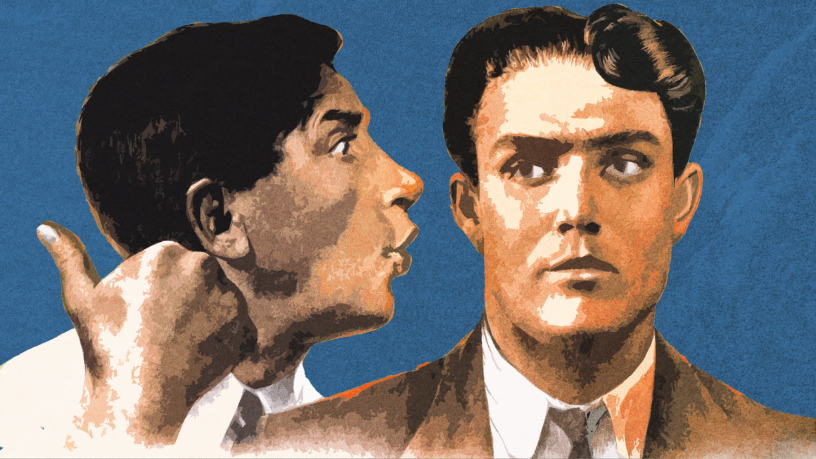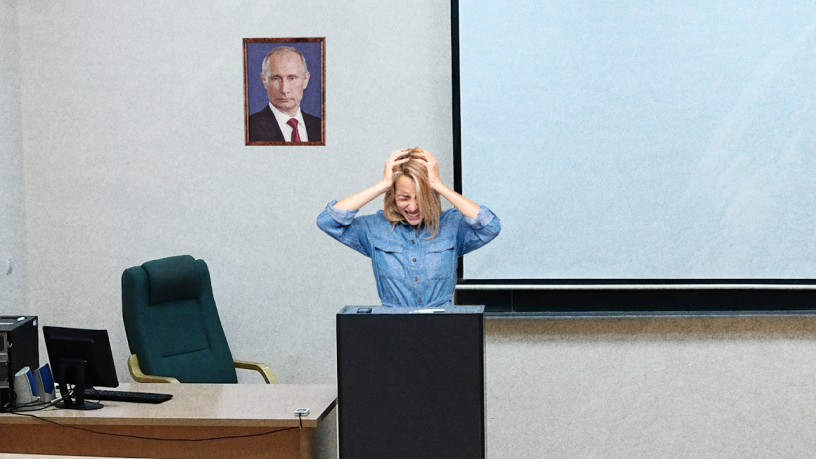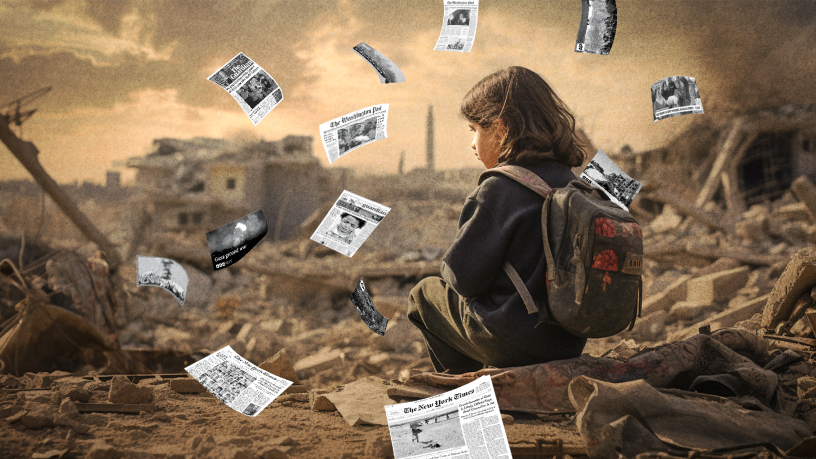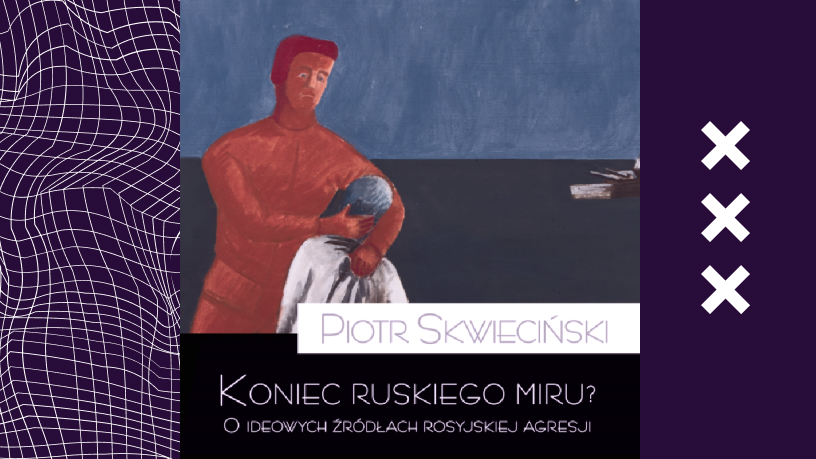Category: War
-
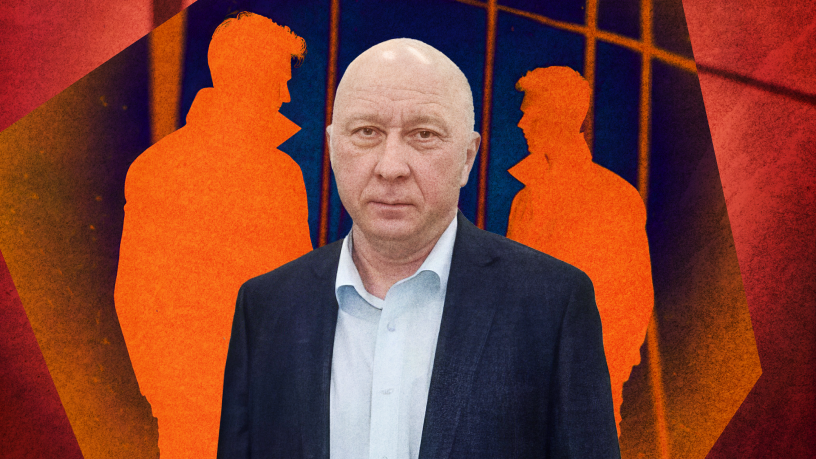
Co-authors. Who and How Fabricated the Case Against Physicist Oleg Kabov?
During the trial of physicist Oleg Kabov, it emerged that the criminal case had been initiated by two of his former students. One of them, after threatening Kabov, joined the FSB (Federal Security Service of Russia), after which the second student filed a denunciation against his former scientific supervisor. It also became clear that the…
-
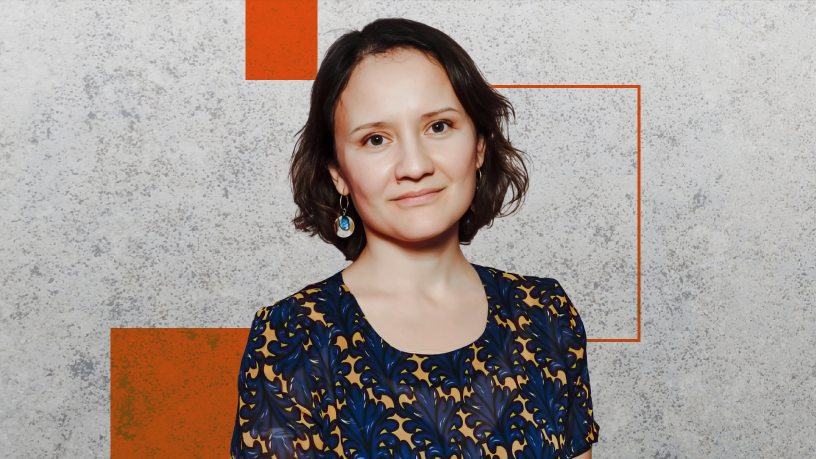
Tatiana Glezer: “95 per cent of journalists cite data from the Gaza Ministry of Health – that is, Hamas”
An international team of scientists analysed 1,378 stories in the world’s leading media about casualties of the war in Gaza. It turned out that 85 per cent of these publications did not distinguish between fighters and civilians, and 95 per cent used data provided by the Gaza Ministry of Health, which is run by Hamas.…
-
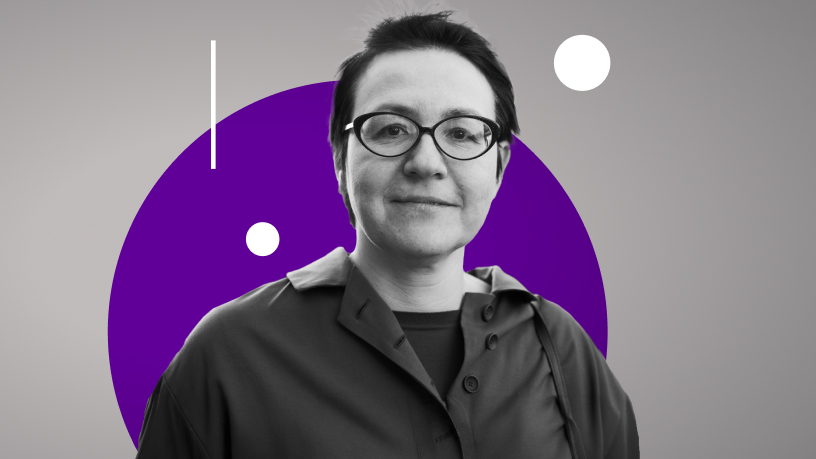
Ekaterina Zhuravskaya: “Expectations from the sanctions were clearly too high”
One of the winners of the George Gamow Prize this year was Ekaterina Zhuravskaya, a professor at the Paris School of Economics. In an interview with T-invariant, she told how modern economic science works, whether it is possible to evaluate the results of sanctions and what studies of Goebbels’ propaganda can tell us about the…
-
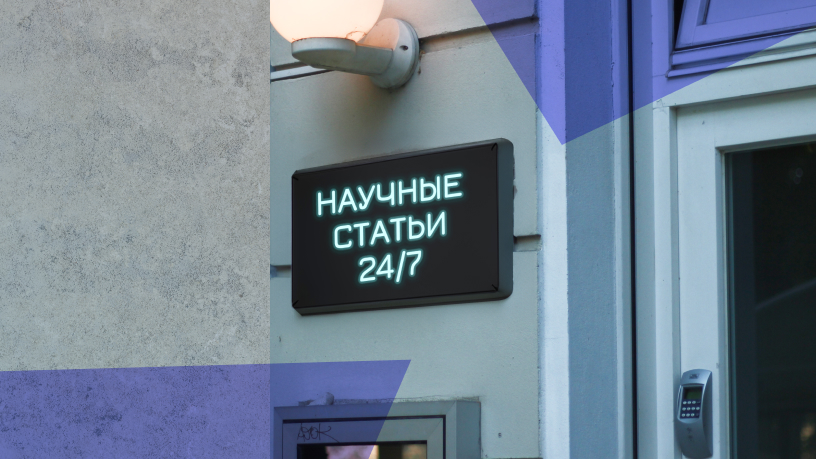
…but it is possible to sell authorship. How a Moscow company forges scientific articles and places them in foreign journals
Recently, American scientist Sam Payne received a review of his own article published three years earlier, but now its authors were five employees of Sechenov University. So the world scientific community learnt about the Russian company “International Publisher”, which is engaged in the production of fake scientific articles and places them for money in major…
-
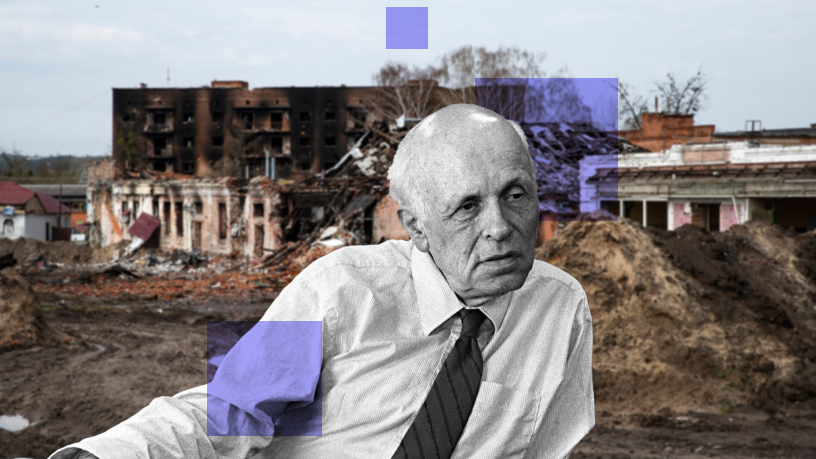
Global Challenges and the Search for Harmony in the Context of the Sakharov Paradigm
The problems of various countries, including Russia, Ukraine, Israel, the USA and China, are part of the global agenda of the future of humanity, including technological and humanistic issues that are being revised today and worry many of us. About the new “dispute of physicists and lyricists” in the context of the Sakharov paradigm “Peace,…
-

Selecting the best vs academic equality: why DEI practices are not catching on in Germany
A recent article by a group of American professors on the introduction of DEI into university practice in the United States has caused a wide resonance. To what extent can DEI be considered a purely American phenomenon, and to what extent has it been assimilated by academic communities in other countries? Germany is a curious…
-
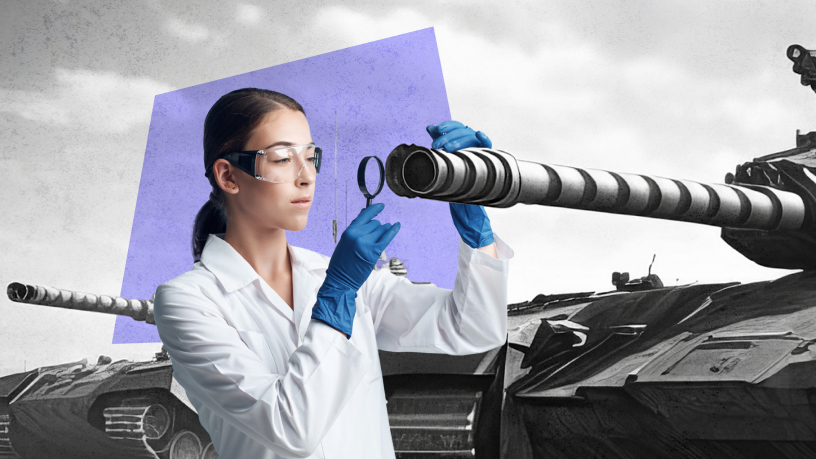
“The Great Russians’ Phase Transition to the Inertial Phase of Ethnogenesis.” How Russian Scientists Are Studying the War in Ukraine
Over the two and a half years that the war in Ukraine has been going on, more than two thousand scientific articles dedicated to the “special military operation” have been published in Russia. Among them are some that have almost no relation to science, as well as quite professional studies by Russian scientists in the…
-

Sociologist Vladimir Zvonovsky: “Those who support Putin cannot really explain his decisions”
This summer, Vladimir Zvonovsky and Alexander Khodykin published a book “Russian Public Opinion in the Conditions of Military Conflict.” T-invariant spoke with Doctor of Sociological Sciences Vladimir Zvonovsky about the results of the study.
-

Rectors of the “Russian world”. Who heads the universities in the occupied Ukrainian territories?
Who are they – convinced patriots who brought the advance of the “Russian world” closer? Or banal opportunists who took advantage of the situation for mercantile purposes? T-invariant presents the results of a study of the biographies of heads of universities located in the occupied Ukrainian territories.
-

Z-plasticity of social fabric.
What scientists understood while studying the “new reality” in RussiaFebruary 24, 2022 is a date that divided the lives of millions of people into before and after. Millions of Ukrainians became refugees, hundreds of thousands of Russians were forced to leave the country, thousands of people became political prisoners. Schools and universities have been invaded by Z-ideology. This gave rise to a new Russian…
-

Normal war. How mass murder changes people’s consciousness and their ideas about the norm
How does war become routine, heroic and ordinary? Do you need to look at photographs of hostages every day? Where is the line between adapting to war and rejecting conflict? These questions were discussed by the participants in the discussion “Normalization of Evil” – urban geographer Aleksey Novikov, visiting researcher at Ariel University Viktor Vakhshtain…
-

Basta tollerare il regime di Putin! Un appello di studiosi del mondo intero
Due anni fa, senza aver subito attacchi precedenti di sorta, Vladimir Putin ha lanciato un’aggressione militare su vasta scala contro l’Ucraina; ne sono risultati massacri e distruzioni a livelli mai visti dalla Seconda guerra mondiale. La guerra contro l’Ucraina ha coinciso con una repressione grave e sempre maggiore contro il dissenso politico e la libertà…
-

No more tolerance to Putin’s regime!
An appeal from scholars of the world42 Nobel laureates called on world leaders to increase aid to Ukraine, protect political prisoners in Russia and not recognize Putin as the legally elected president.
-

Aucune tolérance envers le régime de Poutine !
Un appel d’universitaires du monde entierAucune tolérance envers le régime de Poutine ! Un appel d’universitaires du monde entier
-

¡Basta de tolerancia con el régimen de Putin!
Un llamamiento de los académicos del mundoHace dos años, Vladimir Putin inició una agresión militar no provocada contra Ucrania, causando muerte y destrucción inéditos desde la Segunda Guerra Mundial. La guerra contra Ucrania coincidió con una creciente y severa represión de la disidencia política y la libertad de expresión en Rusia. Hace poco, el mundo se ha quedado sobrecogido por la…
-

Não mais tolerância ao regime de Putin!
Um apelo dos acadêmicos do mundoHá dois anos, Vladimir Putin iniciou uma agressão militar em larga escala não provocada contra a Ucrânia, resultando em mortes e destruição nunca vistas desde a Segunda Guerra Mundial. A guerra contra a Ucrânia coincidiu com uma repressão crescente e severa à dissidência política e à liberdade de expressão dentro da Rússia. Recentemente, o mundo…
-

“Israel was not created for Jews to run around in bomb shelters.” How the war turned the peaceful life of Israelis upside down
Important Stories published a text by T-invariant editor-in-chief Olga Orlova about how the Israelis were left alone with the war. A third of students are at the front, small businesses are on the verge of collapse, volunteers are saving farmers.
-

Black Shaheds will be assembled in Togliatti instead of cars
In Togliatti, in the local special economic zone (SEZ), they can build another plant for the assembly of Iranian combat drones. There is no official information about this and in words the plans are purely peaceful. The EFKO group of companies, the founder of enterprises producing drones in Tolyatti, pretends that it has nothing to…
-

Condemning the Hamas Attack on Israel and Rejecting Hate Speech: A Public Response to a Colleague
T-invariant publish open letter by Alexander Kabanov, Mescal S. Ferguson Distinguished Professor, Director, Center for Nanotechnology in Drug Delivery Chapel Hill, UNC. He writes: “The terrorist attack on Israel on October 7, 2023, shocked me deeply. I was also disappointed by the statement issued by the UNC Chapel Hill Faculty, Graduate Students, and Staff Regarding…
-

“The state is the parent who beats”, “mobilized and isolated security forces” and “Russia is like a blossoming lotus”
In Chicago, at the annual conference of the Russian-speaking American Scientific Association (RASA), sociologists who have recently been living in the United States chose for their presentations topics that can now hardly be discussed publicly while in Russia. Sergey Erofeev (Rutgers University)presented a brief overview of the most interesting presentations for T-invariant.
-

Death in avocado orchards. How volunteers searched for terrorist attack victims in Israel
The number of Israelis abducted during the terrorist attack on October 7, whose identities have been identified, has reached 210 people. However, it is not yet known how many people remain alive and how many are killed. In southern Israel, where fighting is still ongoing, small volunteer groups were searching for missing people. Zoologist Alexandra…
-

How Israel itself “brought” war to itself
How do the events of October, 7 differ from the previous Israeli-Palestinian conflicts? Why was Israel unprepared for the invasion? What could happen to the hostages? A new configuration of the relations between Palestine and Israel emerges, says Dmitry Mariasis, candidate of economic sciences, specialist on the Middle East, former head of the department of…
-

Mutiny P.S.: nobody is ready to defend the existing political order
Has Yevgeny Prigozhin’s march on Moscow broken the «negative equilibrium» Russia has been stuck in for the last twenty years? Vladimir Gelman, political scientist, professor at the University of Helsinki, and author of the book on «bad governance» in contemporary Russia, analyzes the consequences of the failed mutiny and possible alternative scenarios.
-

«I will not be able to return to Russia…»
Philologist Boris Gasparov, professor at Columbia University in New York spoke in an interview with T-invariant about his new book, the impossibility of doing Russian cultural history today, and why the current emigration of intellectuals is more like the German emigration of the 1930s than the «philosophical steamer.»
-

Stubbornness of Fact VS Loyalty of Lies
Why is it important for global science to maintain ties with the scientific community in Russia? Arguments of Associate Professor at the University of Johannesburg Aleksei Oskolski.
-
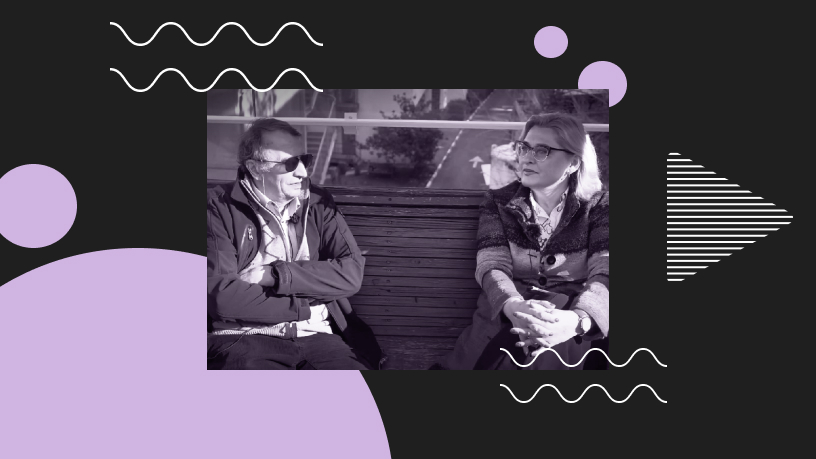
Philosophical scooter: How does academic solidarity work in an age of catastrophe?
The war caused the largest and fastest «brain drain» from Russia since the early 1990s. What is the peculiarity of this wave? T-invariant launches a series of videos titled «Philosophical Scooter». Первый выпуск: «Brain Drain: How Scientists Go to Israel». We discuss with Yakov Krasik, Professor, Department of Physics, Professor, Department of Physics, The Technion…
-
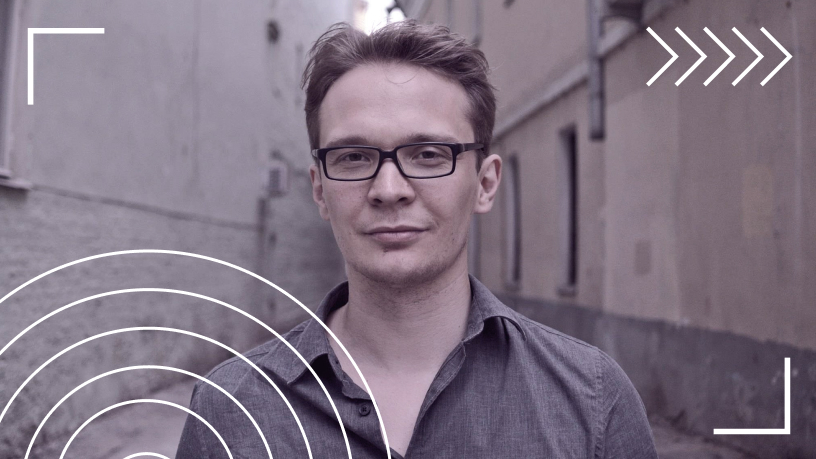
Free university cannot be deemed «undesirable»
The Prosecutor General’s Office of the Russian Federation announced that the Free University had been given the status of an undesirable organization. «Our censors and persecutors are a little too late,» believes Kirill Martynov, co-founder of the Free University. He even sees some pluses in the new status.
-
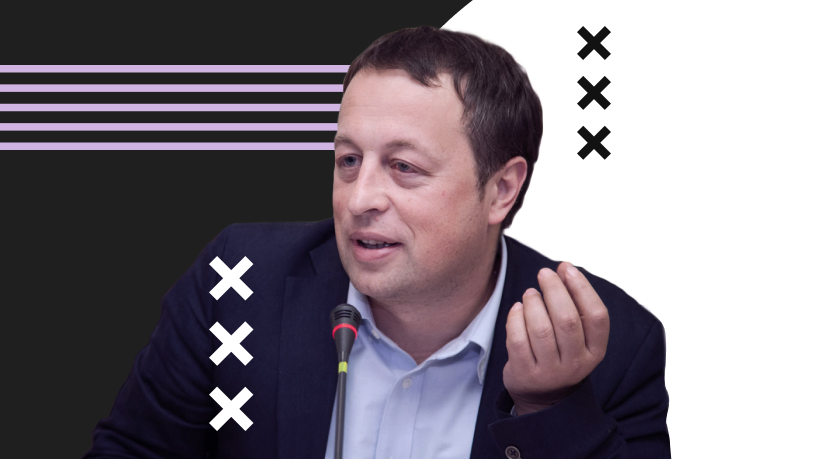
RASA statement in support of Professor Konstantin Sonin
The Board of Directors of RASA (Russian American Science Association) expresses full and unconditional support to a valued member of our association Professor Konstantin Sonin of the University of Chicago, in connection with a recent reports that a criminal case has been opened against him in Russia on suspicion of publicly disseminating of allegedly «false…
-
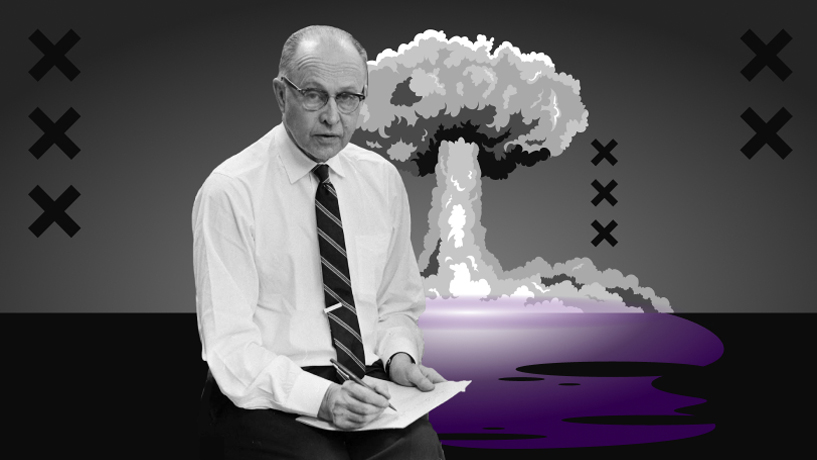
George Kistiakowsky — the Unknown Father of the American Bomb
His ideal was a quiet university job, but life made him a “merchant of death.” Georgy Kistyakowsky’s name does not appear in a history textbook. But it was his knowledge that helped turn the tide of World War II and influenced the policies of one of the two superpowers. Though it wasn’t even his homeland.
-
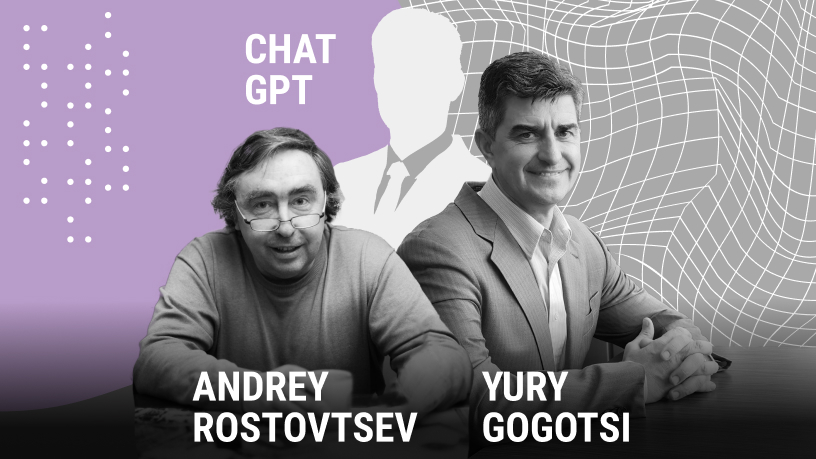
Two brave and a chatbot
An international boycott of scientists for their government’s war? Even anti-war-minded people are divided over such measures. Many do not risk speaking out about it. So in addition to the scientists’ answers, we asked questions to the artificial intelligence. At least it doesn’t have emotions to suppress.
-
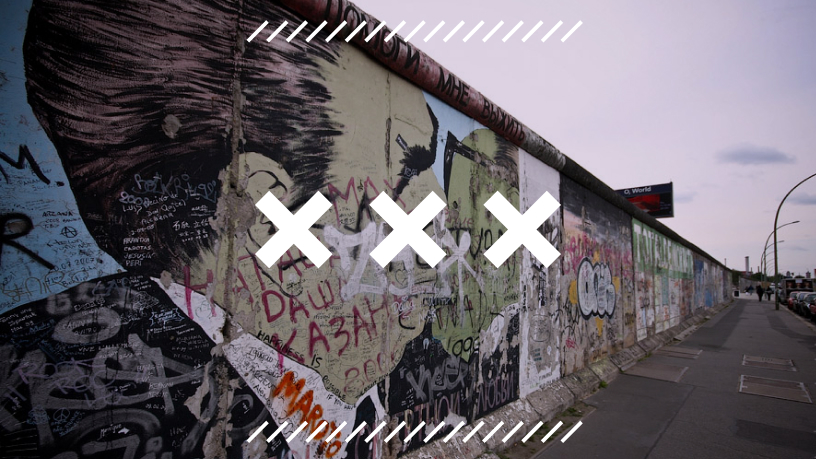
Berlin Wall 2
Ukrainian scientists have appealed to the international community to boycott their Russian colleagues. However, such a boycott conflicts with a number of important legal and ethical principles, and in practical terms may do more harm than good in countering Russian aggression.
